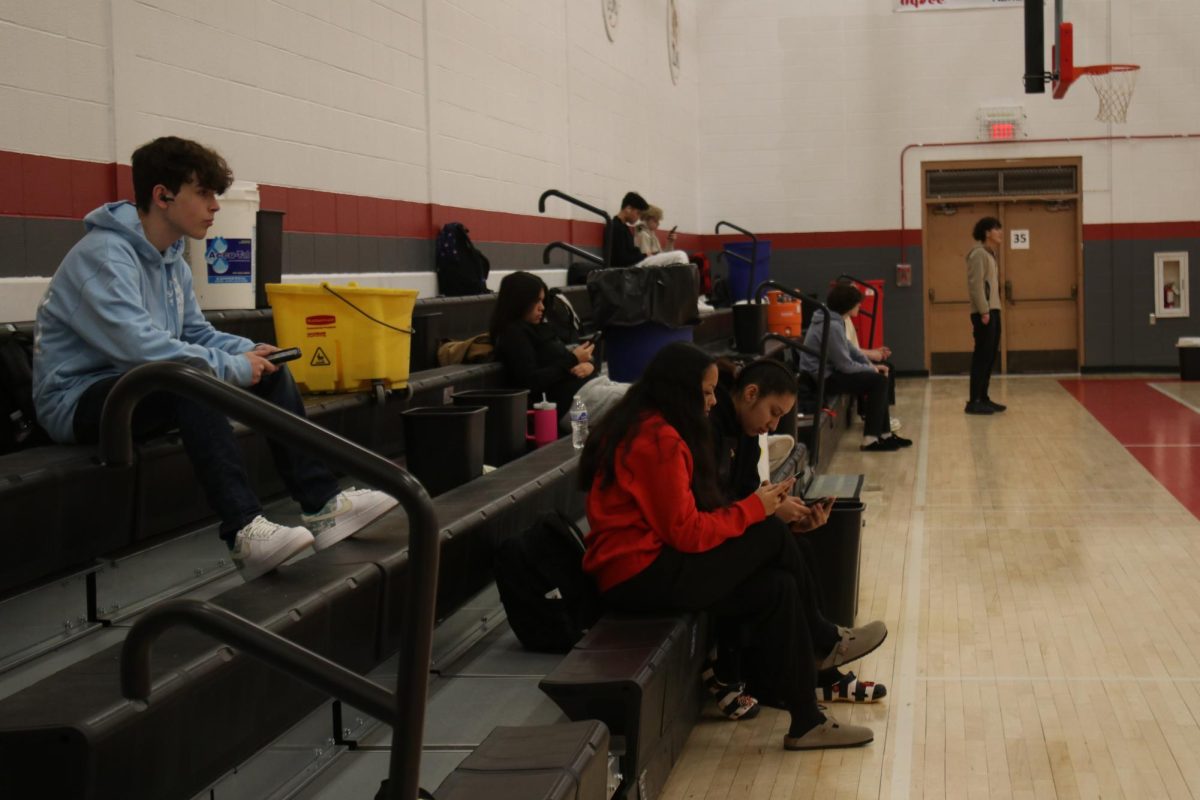Oh, the dreaded finals.
By May, as most seniors’ attention span gives out under the weight of chronic senioritis (three years building), many are desperate to be exempt from their finals. And if seniors meet the set criteria, they can do just that.
The policy can be found on red posters in classrooms, offices and in the student planners, page 28. It can be found. It can be read. But it can’t be understood.
Unless you spend a week interviewing school administrators and teachers. A week reading and re-reading the policy. And I still have questions.
Here is my attempt to clarify the policy and point out the discrepancies:
Policy breakdown
First of all, the policy has two sets of criteria:
The general criteria that apply across the board require that seniors have no unexcused absences, no suspensions, no more than five excused absences and no more than 10 total tardies, “excused or unexcused,” according to the red posters.
On top of that, students have to have fewer than a set number of absences per class, based on the grade they have in the particular class.
“It does become somewhat confusing because you have kind of established set criteria and you have some sort of sliding criteria based on grades,” assistant principal Mark Preut said.
What confuses the students most, however, is the wording.
The policy, as stated in the planner, suggests but never explicitly states if a student who meets the general criteria but doesn’t meet the grade criterion in a particular class can be excused out of all other finals.
To clarify the policy, assistant principal Mike Norris said, “If you’re otherwise eligible and have five excused absences . . . you just take the finals in the classes in which you didn’t make the grade requirement.”
Role of teachers
Second, the policy doesn’t say if teachers have to exempt qualifying students.
“What happened was even though the kids were exempt, some teachers were still making them take the final,” math teacher Pam Fangohr said. “I think they need to have an assembly or something so all the staff understands it, a little better communication maybe.”
Neither the student handbook nor the red posters give a straight answer. Even Preut said he’d have to look at the exact wording before he could decide.
Practice and policy differ
Third, there is a discrepancy in policy as written and as practiced.
The policy on the red poster states: “No more than 10 tardies (excused or unexcused),” while the student handbook just says tardies without mentioning excused or unexcused.
Skyward denotes excused tardies with an L or “excused tardy” and unexcused tardies with a T or just “tardy,” depending on the page students look at.
“Your mom takes you to an appointment and when you return to school you have missed a part of class, that would be an ‘L’ or excused tardy,” Norris said. “Your math teacher keeps you after the dismissal bell to finish a test and you’re late to your next class as a result, that would be an ‘L’ or excused tardy.”
If students take the policy as stated, then their excused tardies from teachers and parents would count against them.
However, in practice, excused tardies don’t count against students, Norris said.
Changes on the way
Due to the confusion, administrators have discussed rewriting the policy to clarify the meaning.
“There won’t be any changes for this year because obviously we are so far down the road,” Preut said, “but it is something that we are looking at reviewing and seeing if we need to tweak it to make it run more smoothly or more coherent at times.”
For this year, there will be only one change in the final exemption protocol: Student services office is getting rid of red cards.
Previously, seniors who qualified for final exemptions got red cards that were to be signed by their teachers of the classes they didn’t have to take the final in. After getting them signed, the seniors would return them to the student services office.
“I know there have been kids before who lost their cards, so they are in this panicked state of mind,” Fangohr said. “Having the red card is really probably not even a worry any more because with email we can get information as to who are the students who do have to take the finals and who do not have to take.”
On top of causing anxiety in students, having the red cards meant a lot of work for the student services office.
Instead of the red cards, the student services office will let teachers know which students are eligible based on the general criteria, and the teachers will work out within their classes whether the students meet the grade requirements.
“Honestly, the student services office doesn’t need to know if you are taking a final in English,” Preut said. “Your English teacher needs to know, you need to know but we don’t need to know.”
Getting rid of red cards is a start, but administrators still have a lot of work to do before the policy can be made comprehensible. Until then, seniors will have to rely on the graphic below.














